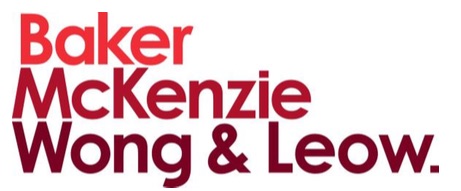8 August, 2019
In March 2019, the Ministry of Law conducted a public consultation on the draft Intellectual Property (Dispute Resolution) Bill (the "Bill"). The Bill proposes reforms to the IP dispute resolution system in Singapore, following a review of the existing system by a committee appointed by the Ministry of Law.
The Bill has now been tabled in Parliament, on 8 July 2019. The Bill will be read a second time in Parliament at the next available sitting.
The Bill introduces cost-saving features and simplified processes to streamline the IP dispute resolution process in Singapore. The new framework consolidates most civil IP disputes to be heard in the High Court at the first instance, clarifies that IP disputes can be arbitrated, and formalises procedures that allow third parties to challenge the validity of patents before and after they are granted.
Further details on the changes can be found in our March 2019 newsletter here.
What it means for you and your business.
The harmonisation of the dispute resolution process to commence in the High Court provides certainty for rights holders who wish to enforce their rights in Singapore and limits potential forum-shopping. For example, under the current Patents Act, declarations as to non-infringement may be made by the High Court or Intellectual Property Office of Singapore (IPOS), and the IPOS has jurisdiction to hear patent infringement disputes' agreement. The Bill proposes that all patent infringement proceedings and declarations of non-infringement should be initiated at the High Court.
Importantly, parties, especially individuals and small businesses, do not have to be unduly concerned that there may be a corresponding increase in time and costs if disputes are heard in the High Court instead of IPOS. The Ministry of Law has proposed introducing a "fast track" option for IP litigation, intended for lower value disputes or those where parties prefer an expedited process in the conduct of their case.
This is a welcome move in enhancing Singapore's status as an IP dispute resolution hub, and enhances access to justice for litigants who may otherwise find the time and costs of IP dispute resolution prohibitive.
Further, parties can now resolve IP disputes via arbitration. This puts to rest the oft-pondered issue on the arbitrability of IP disputes in Singapore. However, the resulting arbitral awards bind only parties to the dispute, and do not have an effect against third parties.
This proposal gives parties an additional option for dispute resolution and increases Singapore's attractiveness as an arbitration venue.
Instead of instinctively considering IP dispute resolution via the litigation process, rights holders can now confidently consider the most appropriate dispute resolution method relating to their IP. Arbitration may be a more appropriate avenue for dispute resolution if, for example, parties value confidentiality in the proceedings and arbitral award, and flexibility in the dispute resolution process.
Separately, parties who wish to challenge a patent application after it is published but before it is granted, now have access to a formal process to submit observations on the patentability of the invention in the patent application. This is akin to the trade mark opposition mechanism in Singapore.
In addition, third parties can now file a request for a patent to be re-examined post-grant, with appropriate safeguards put in place to balance against the rights of the patentee against frivolous and vexatious re-examination requests.
For further information, please contact:
Andy Leck, Principal, Baker & McKenzie.Wong & Leow
andy.leck@bakermckenzie.com





